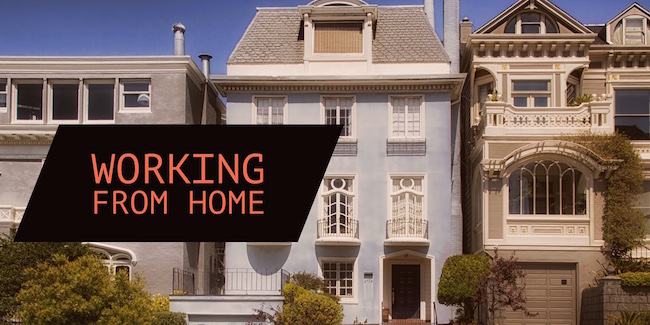Don’t get me wrong. I love living the freelance lifestyle. But, working from home can get exhausting at times. Sure. I can relocate temporarily to my favorite coffee shop or rent a shared office space from time-to-time. But, what most home-based businesses really need is a dedicated area.
Unfortunately, I don’t have the extra space in my home. That’s why I’ve been intrigued with the tiny house movement which could give me a unique home-based option that I could relocate to if and when I wanted.
Table of Contents
ToggleThe Pros and Cons of the Tiny House Movement
For around the last decade there’s been something dubbed “the tiny house movement.” If you’re not familiar with this movement it’s best described as “a social movement where people are choosing to downsize the space they live in.” Instead of living in a 2,600 square feet, people are opting to reside in a small or tiny house that is between 100 and 400 square feet.
The main driving force behind the tiny house movement are the savings that owners experience. For example, you can purchase a tiny house for just $40,000 (in some cities that are not in Silicon Valley, or Manhattan). Around 68 percent of tiny home owners don’t even have a mortgage payment. Since you don’t have to worry about rent or a mortgage payment, and the reduced utility costs, you can save more than $1,000 per month. This allows you to pay down your debts and put more aside into your savings account.
Tiny houses are also more environmentally friendly, can be mobile, and can be customized into whatever you wish to add.
There are also some cons involved with tiny houses.
For example, you still have to purchase a piece of land. By the time you install electricity and a septic system, or sewer connect, you may be spending more than the actual cost of the tiny house.
Another disadvantage is that they’re small. As one owner, Jesse Harrison explained, “You can’t have your own home office.” Harrison added, “You can’t turn on the TV late at night because your significant other might wake up.
If you have a lot of items, you will have to sell some because there isn’t enough room for everything.” Of course, some of those disadvantages can be remedied — such as designing a custom kitchen area that includes a desk — but when living in a tiny home, there are going to be some serious compromises.
That last concern shouldn’t be taken lightly. Dak Kopec, director of design for human health at Boston Architectural College and author of Environmental Psychology for Design, told The Atlantic that smaller spaces “can be unhealthy for older people, say in their 30’s and 40’s, who face different stress factors that can make tight living conditions a problem.”
Internet Connection
The other issue is having internet connection. Since there’s a fair amount of tiny house dwellers who work from home this could be a deal breaker. If you aren’t able to run a cable line directly into your tiny house you may have to turn to more expensive and less reliable alternatives like wireless internet and satellite internet.
If you’re fortunate enough to have a neighbor with internet access you could tap into their service. But, that doesn’t guarantee that it’s strong enough to meet your needs.
If you’re planning on moving into a tiny house and run a home-based business out of it; I would recommend against it. It’s too cramped and it may not gel with your lifestyle.
However, there is another option. Shedworking.
Shedworking: The Ideal Solution For a Home-Based Business
The name coined by Alex Johnson, who is author of Shedworking: The Alternative Workplace Revolution, this trend is where people are building tiny homes on their property and using them as a workplace. Similar to the “mother-in-law apartments introduced in the 1970’s and 1980’s.
As one of my favorite authors, and Chief Content Officer at MarketingProfs, Ann Handley writes, “There’s a lot of living that goes on in a house. There are other rooms used for other things—for entertainment, for cooking, for showering, for laundry, for sleeping. There are people who wander in and out, they talk and breathe in and out, and some days I find each intake and exhale irrationally distracting.”
Ann’s solution? She built her own tiny house because she wanted a “place where I could focus on work I love, and more work I love, because there’s nothing else on which to focus anyway.
In this case, a tiny home could be your answer to a home-based business.
It gives you a distraction-free area for you to work. You will want to be able to run internet access to the tiny home.
There may even have just enough space to meet with a client. And, you may also have a quiet space when you need to take a nap or meditate in order to recharge the batteries and relieve stress.
The biggest snag may be the zoning laws where you reside. But, via The Huffington Post, there are some loopholes around this. This includes building your tiny house on someone else’s lot as an accessory dwelling unit (ADU). It also includes putting your home on a trailer, finding a tiny house community, relocating to a city that allows tiny homes, or choosing a tiny home that isn’t technically a tiny home.
The Bottom Line
If you have the funds to purchase a tiny home, along with a place to build your home and access it to a reliable internet connection, then a this could be an ideal solution for your home-business since it will be your own workspace that keeps out distractions and encourages productivity thanks to all of the natural light you’ll be letting.













